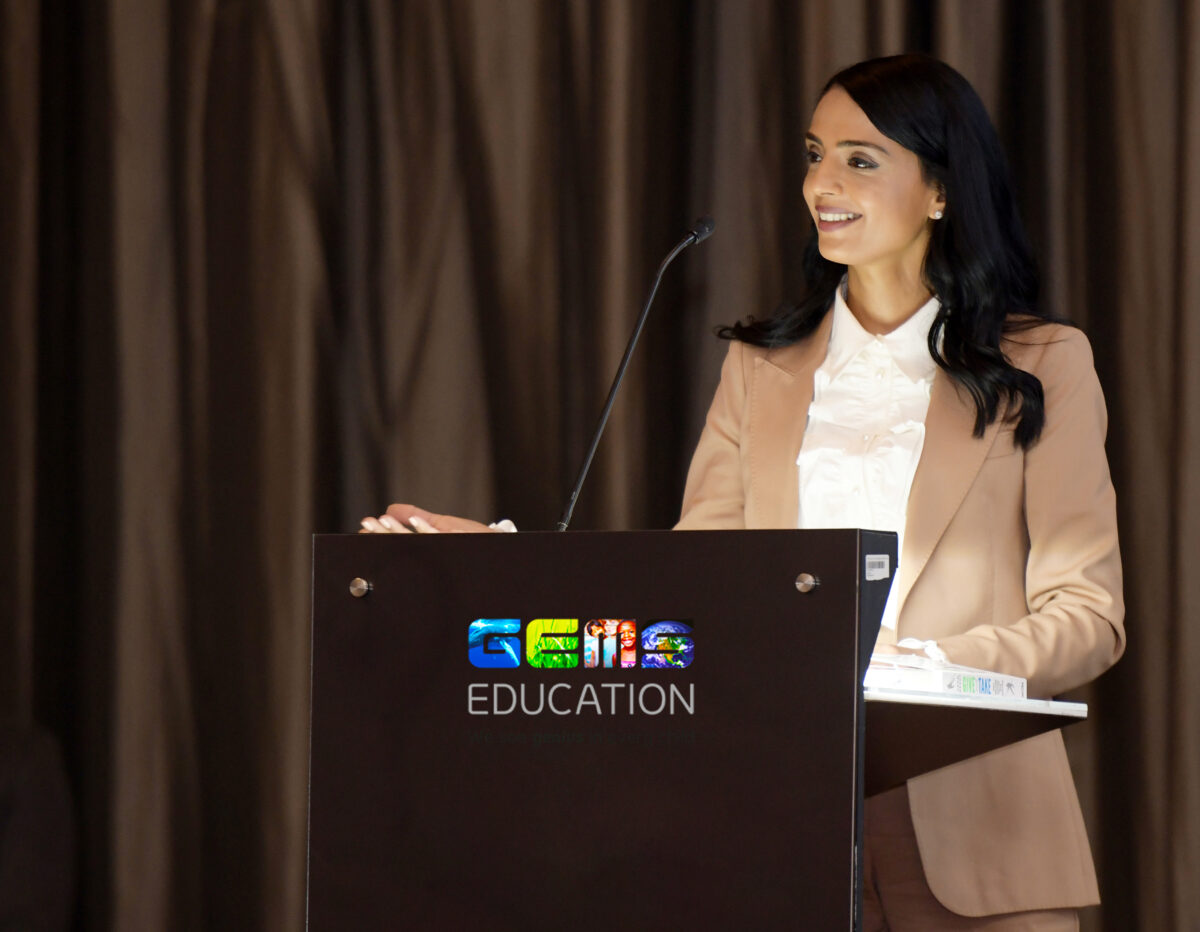
The SchoolsCompared.com Interview. ‘Bob Dylan, The Future of Education and Not Trading Away Kindness for Cynicism.’ Dr Saima Rana On The Record.
~
“Teachers are The Centre of the Universe”
~
 SchoolsCompared.com: As in life, often we are drawn to people that are drawn to us; to people that see gifts in us…. When we look back to our school days, it is often the teachers that saw something in us that we responded to best…. It must be so hard for teachers to make every child feel special, to even possibly like every child – but can you imagine the impact it would have if teachers could do this? If all children are gifted, as GEMS thinks, and if all children deserve to have those gifts discovered and nurtured, as GEMS believes, should we not start with teachers and find those that see the good and potential in every child. Makes every child feel the centre of the universe…. How do we do this?
SchoolsCompared.com: As in life, often we are drawn to people that are drawn to us; to people that see gifts in us…. When we look back to our school days, it is often the teachers that saw something in us that we responded to best…. It must be so hard for teachers to make every child feel special, to even possibly like every child – but can you imagine the impact it would have if teachers could do this? If all children are gifted, as GEMS thinks, and if all children deserve to have those gifts discovered and nurtured, as GEMS believes, should we not start with teachers and find those that see the good and potential in every child. Makes every child feel the centre of the universe…. How do we do this?
![]() Dr Saima Rana, CEO/Principal, GEMS World Academy; Chief Education Officer, GEMS Education; and, Chief Education Ambassador, The Varkey Foundation:
Dr Saima Rana, CEO/Principal, GEMS World Academy; Chief Education Officer, GEMS Education; and, Chief Education Ambassador, The Varkey Foundation:
You’re right – teachers are the most important part of any school because they are charged with the incredibly difficult task of placing the child at the centre of everything they are doing – the centre of the universe as you put it – and they must do that with not just one, or a select few, but every child placed under their purview. At GEMS – and in all great schools – teachers bring with them the expertise to do this very thing. This requires a range of aptitudes, skills and knowledge – they have to have the personalities too that enable them to engage with students on very many different levels all the time, day in and day out, and tirelessly find out what it is that makes each individual tick and then work out bespoke ways of generating that curiosity, engagement, tenacity and love for learning their subject matter that is at the heart of the learning process. If you think about it for a moment, what a classroom teacher does every day is quite amazing: they will have to have quite intense and important interactions with perhaps 150/200 students every day, teaching them, assessing and mentoring and coaching and sometimes disciplining them – whilst also interacting with maybe 10 to 30 or so older adult colleagues and leaders and support staff and parents a day, doing bureaucratic work, planning and so on – doing this at least five days a week. What other job is so people intense – these aren’t casual passing interactions – so crucially bureaucratic, so dependent on being learned about specialised subject matter, psychological and social insight, so dependent on having enough mental energy and physical strength to do this throughout a week non-stop? Teaching is one of the most demanding jobs in the world, and one of the most exciting and rewarding if done well. It’s why schools like ours spend so much time working out rigorous recruitment and retention strategies, why the welfare of teachers is always, always about trying to ensure that removing barriers to their working well with students is a number one priority for school leadership and that we hold them to such high standards and in such high regard. For me teachers are heroes because they are the ones that translate through their everyday work the aspirations, hopes and dreams of schools and students and parents into reality. Inclusivity, formative assessment teaching practices, immersive learning environments, care, diligence, and subject expertise – with these a great teacher is able to place every child at the centre of the universe and they are my heroes.
 SchoolsCompared.com: What could US curriculum schools learn from British schools and vice versa What could both US and UK curriculum schools learn from Indian curriculum schools, and vice versa? What could IB schools learn from US, British and Indian schools – and vice versa?
SchoolsCompared.com: What could US curriculum schools learn from British schools and vice versa What could both US and UK curriculum schools learn from Indian curriculum schools, and vice versa? What could IB schools learn from US, British and Indian schools – and vice versa?
![]() Dr Saima Rana, CEO/Principal, GEMS World Academy; Chief Education Officer, GEMS Education; and, Chief Education Ambassador, The Varkey Foundation:
Dr Saima Rana, CEO/Principal, GEMS World Academy; Chief Education Officer, GEMS Education; and, Chief Education Ambassador, The Varkey Foundation:
In GEMS we have examples of each one of these curricula in place. They fit the communities they serve and are all capable of delivering excellence. To ask which is best is to ignore the communities and the contexts.
 SchoolsCompared.com: Bryanston, in the UK, gives a child its own mentor that stays with them for their lifetime at school, that grows with them. They meet for say 10 minutes, or maybe longer, every two weeks, every month…. Could you see a way we could have schools here in which every child has a mentor from the moment they join a school?
SchoolsCompared.com: Bryanston, in the UK, gives a child its own mentor that stays with them for their lifetime at school, that grows with them. They meet for say 10 minutes, or maybe longer, every two weeks, every month…. Could you see a way we could have schools here in which every child has a mentor from the moment they join a school?
![]() Dr Saima Rana, CEO/Principal, GEMS World Academy; Chief Education Officer, GEMS Education; and, Chief Education Ambassador, The Varkey Foundation:
Dr Saima Rana, CEO/Principal, GEMS World Academy; Chief Education Officer, GEMS Education; and, Chief Education Ambassador, The Varkey Foundation:
Well, I think we have to ask what we mean by ‘mentor’. I think that ever teacher is a mentor, and that a great teacher is one who encourages, nurtures talent and hope and successfully opens new horizons for students in every interaction. I think there’s something to be said for embedding mentoring and coaching in the everyday practices of a school and this means that everyone in a school – teaching and non-teaching staff alike, should be trained to understand that every time they speak with a student they are supporting that student in their striving to fulfil their ambitions. I think the attitudes of staff in schools are crucial to mentoring students, and one of the things we require in GEMS schools is that relationships are cultivated that are positive, caring, and supportive of each student. The modern school is thus something very different from perhaps traditional views of schooling which artificially separated the mentoring work from the academic. As I have continually said throughout this interview, we need a holistic approach – consider and educate mind, heart, spirit, and body all together and all the time – we include the role of parents in this as well. The model you suggest – a meeting a week, a month – well now, to me that seems to be an admission that something is missing in the rest of the work they’re doing. I prefer to integrate the mentoring and coaching work so that students have this as part of their daily learning experience both in school and at home.
Return to contents page: click here.
NEXT Chapter: On Dubai






















































Thank you Dr Saima Rana
I enjoyed your interview and focus on the empowerment of girls in all fields of education, from the Sciences to the Arts.
You had already laid the foundations of your work in the UAE with your vision of enriching the rights of every child to a fair education in the United Kingdom. I saw first hand how you brought out the full potential of students at Westminster Academy in London, with your hand picked team of staff leaders and the ways you provided countless students with opportunities to study at top universities.
Today, as a result, my daughter is using all her skills, talents and knowledge – these flowing from the support you and your team empowered her with during her time at Westminster Academy.
As she continues her studies at Oxford University, I would like to think that she is representing your vision of equality and fairness of opportunity in education for every child.